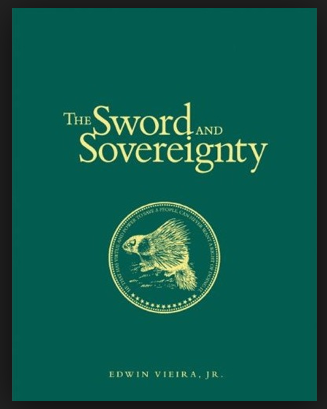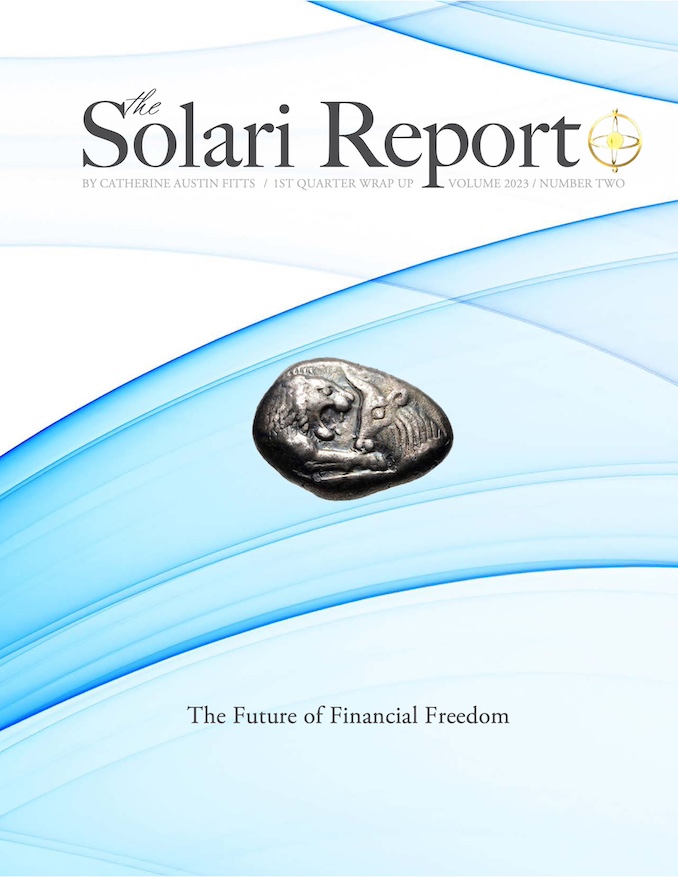"The greatest fine art of the future will be making a living from a small piece of land."
~ Abraham Lincoln
By Pete Kennedy
This past year we’ve witnessed a decrease in the quality and reliability of our conventional food supply as well as of our medical system. Homesteading and growing our own food and medicines can help counter both of these developments.
My guest for this Solari Food Series audiocast is again John Moody, who lives on a 35-acre farm in Kentucky and has been homesteading there for the last 12 years. He consults with homesteaders around the country and is a popular speaker on this topic at conferences such as the Mother Earth News Fairs. He is also the author of several books including The Frugal Homesteader.
In our interview, John talks about various aspects of homesteading and describes steps homesteaders can take to be successful, whether they live in the countryside, a suburb, or even an urban area. Among other topics, John offers advice on how to start up a homestead as well as how to build soil and deal with pests, weeds, and other threats to the harvest. He also covers what it takes to grow high-quality produce, how to negotiate current seed shortages, and how to efficiently use the growing space you have or set up an indoor growing system.
John has generously offered to answer questions homesteaders might have. You can submit questions to foodseries@solari.com.
Seeds for Generations, a heirloom seed company, is also offering a discount to Solari subscribers. See details below.
Timemark Segments
05:10 Recommendations for people starting to homestead
26:36 Pest control
36:00 Weed control
43:48 Building soil
1:02:55 Advice on growing produce
In Let's Go to the Movies, I recommend the 2012 documentary Wartime Farm, a reenactment of Manor Farm’s operation in Hampshire County, England, during World War II. Churchill called Britain’s farms the “frontline of freedom” during World War II as they enabled the country to increase the production of food. Today, the ability of our local communities to be as self-sufficient as possible is also a “frontline of freedom” as the planet is being ravaged by a variety of detrimental practices by industry, agriculture, and the military.
Wartime Farm Part 1 of 8 (59:28 min)
”678” is not validIn Money & Markets, Catherine and John Titus will review current financial and geopolitical news and discuss what to watch for in 2021. E-mail your questions for Ask Catherine or post at the Money & Markets commentary for the second week of May here.
Talk to you on Thursday!
Related Reading:
Books by John Moody available on his website:
- The Frugal Homesteader
- Winning the War on Weeds
Other books:
- The Nourishing Homestead: One Back-to-the-Land Family’s Plan for Cultivating Soil, Skills and Spirit by Ben Hewitt
Related Links:
Farm-to-Consumer Legal Defense Fund
The Weston A. Price Foundation
Source for heirloom seeds:
Seeds for Generations is a family business devoted to sharing their love of heirloom seeds and gardening, seeking to inspire and equip more people to grow their own food. Jason and Shannon, and their seven children, grow most of their own food on their homestead in the mountains of Virginia, and want to help you and your loved ones be able to do the same. In a modern economy that’s coming apart at the seams, they want to help you grow a better future, and are sharing a special discount offer just for Solari subscribers! Please log in to access the code.








This may be already mentioned in the talk as I have not listened to it in full…just snippets. Beginning last year I had a beautiful heirloom organic tomato I purchased at the grocery so scooped out some of the seeds, air dried them and planted. I know have been through a full season with production of these tomatoes so they are adapting to my conditions here. I had actually done this previously with the winter squashes as my compost piles always produce the absolute best squashes but it took a while to really occur to me I could be saving seed from some of the organic heirloom food I was buying. Now I’ve been successful with red bell peppers and the experimentation goes on….
Such fun!
A friend in upstate New York explained that her organic seed purchased online did not germinate. A local garden center near her had the same problem. What did germinate, became frail and died. At a garden center in Memphis two days ago, I mentioned this problem to another customer as we waited in line and a woman said her 72 year old dad, who clearly did not purchase his seed on line, had the same problem in Mississippi. The food shortage problem is bigger than we know.
Frightening
BTW, while we are at it, no peat moss anywhere in TN. Haven’t looked in other states (yet). Soils here are very thick with clay and peat moss is the best way to amend the soil to add more organic material to allow air into the roots and break down to friable soil over time. Soils here are acidic so peat moss doesn’t require pH adjustment for most plants (might want to add a bit of lime to a adjust for vegetables). Will be stock piling some of my significant manure piles to compost and haul it up to TN for now- don’t need that much- and we are building soil in TX, too. (Barns are full of competitive horse right now!) The peat moss would be good there as our soils are straight limestone in TX- can’t even wash the car with well water as it is covered in white streaks.
It just keeps coming…
Great interview! I learned a lot. Seed saving is fantastic and pretty easy. Tomatoes and Basil are the easiest ones I have saved and I have used them year after year. I look forward to trying more varieties this year.
It was interesting to hear that John was looking for land that was closer to social opportunities for his family – even an MMA gym 🙂
It was also nice to hear about ‘getting into the weeds’ of homesteading; growing food or raising animals is an extremely time-intensive, unforgiving and difficult undertaking. I wouldn’t be surprised that come 2023 there will be some folks who ‘went back to the land’ in 2021 and a year or two later will be fleeing back to the cities after realizing what it all entailed.
His suggestion to try first wherever you are is also very good. You can learn a lot by growing inside the home, where you control the growing cycles and can always start over. Whereas outside, if you make a mistake, you can be waiting a whole year to try again.
When is episode 2??? Can’t wait!
Part II is week after next.
This interview was extremely helpful. Thank you! I will be contacting John directly to get more personalized advice (assuming for a fee).
Just finished listening again on my walk. Fascinating and very useful even if you are only interested in gardening.